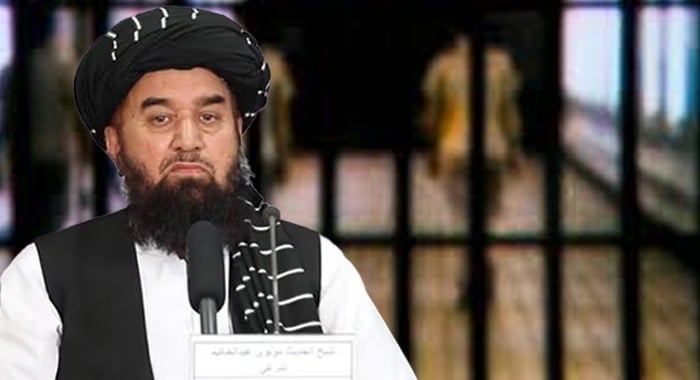Fresh allegations have emerged against Taliban Justice Minister Abdul Hakim Sharei, who is accused of operating a private detention facility within the Ministry of Justice in Kabul, detaining civilians without judicial orders, raising serious concerns about due process and abuse of power under the current regime.
Documents obtained by Afghanistan International indicate that Taliban Justice Minister Abdul Hakim Sharei has been ordering the detention of civilians without due judicial process. These detentions occurred in a clandestine lockup within the Ministry of Justice complex in Kabul, bypassing all legal checks.
In the latest case, four senior officials from the Hazrat Wali Asr Charity Foundation, associated with Ayatollah Vaezzada Behsoodi, were arrested after asking probing questions about the group’s finances during a ministry visit. Those detained were:
Haji Mohammad Taqi Ansari, head of the foundation; Hassan Nikzad, deputy head, Baqer Akhlaqi, office manager, and Wakil Chaman, adviser to the head of the foundation.
They were held for hours in the private facility before being transferred to Taliban intelligence custody, where they remained for about a week. No formal arrest warrants were issued.
This is not an isolated incident. Previously, former MP Haidar Jan Naemzoi was held in the same secret prison. In December last year, Sharei also ordered the arrest of 30 Sanatorium-area residents after they protested forced evictions. They were tricked into ministry summons and later handed over to police.
The Ministry of Justice defended these actions, stating that Sharei has the right, under direct orders from the Taliban supreme leader—to detain individuals for up to ten days in “land usurpation” cases. Although the ministry did not explicitly name Naemzoi, it referred to the arrest of a “rebellious” person by the land anti-usurpation commission and his transfer to provincial authorities—undermining the credibility of due process.
These revelations highlight more than individual abuses, they reveal a systematic erosion of rule of law. When even the ministry tasked with justice operates secret prisons and detains critics without legal oversight, it signals a broader culture of impunity. It also raises stark questions: How is the judiciary being used as a political instrument? Who guards civilians against unchecked ministerial power?
Afghanistan’s future depends on transparent governance and respect for rights, both of which remain under threat by secret dungeons and unchecked decrees. The world must not ignore these indicators of authoritarian drift, especially when justice becomes merely a tool in the hands of a few.





